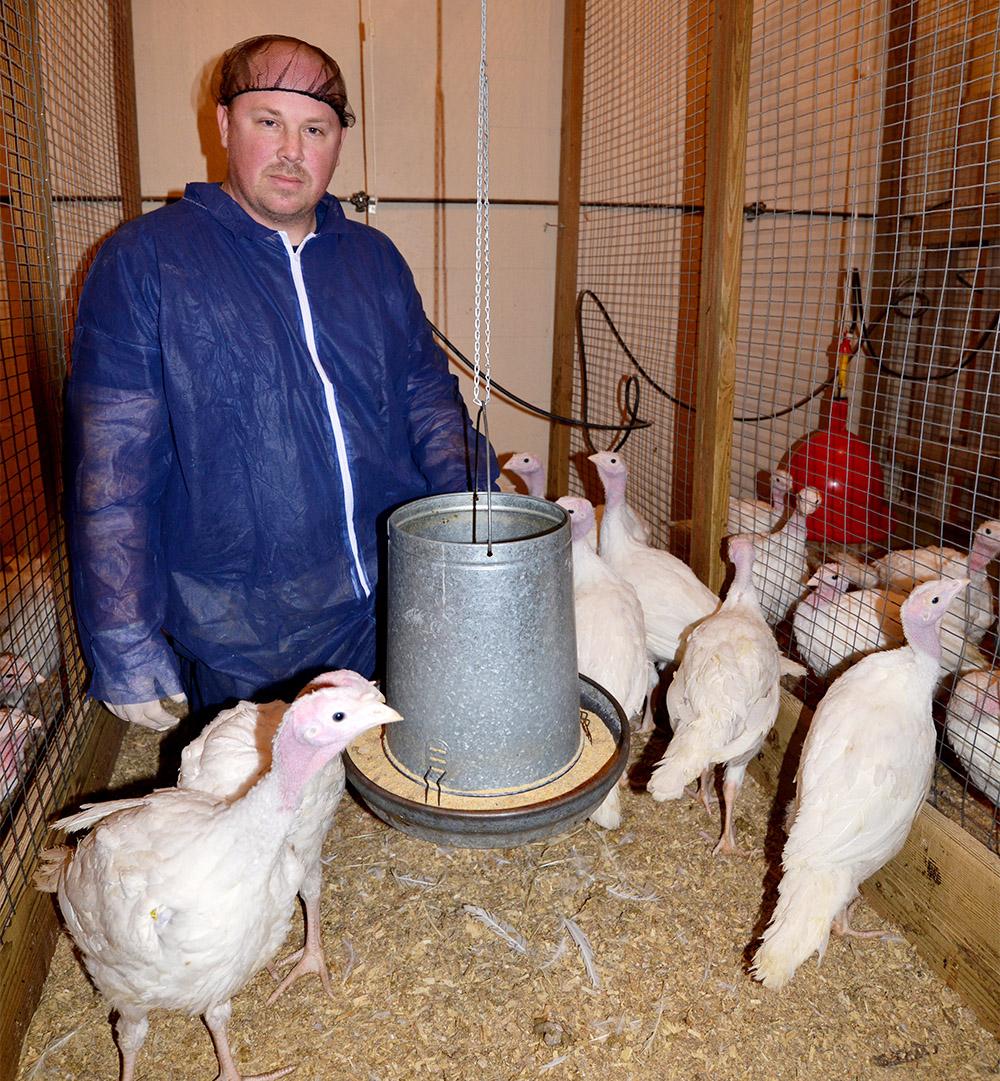From conception to implementation: Expanding horizons on postbiotic technology initiatives
November 22, 2021

University life can get chaotic quickly with faculty who teach, write grants, write scientific papers, and serve on various committees. Participating in a faculty sabbatical not only provides opportunity for professional development and acquisition of new skills and qualifications, but also gives professors the chance to inspire new research or teaching initiatives, creative activities, or develop a new course or program.
VBS Professor Tim Johnson recently participated in a one year sabbatical, which allowed him to pursue the field of applied poultry research at Cargill Health Technologies. Johnson’s role while at Cargill was to oversee the conception and implementation of controlled live poultry research to support the development and testing of alternative feed additive products. Specifically, Cargill specializes in postbiotic technology, which involves the fermentation of live organisms such as yeasts to produce bioactive metabolites capable of enhancing bird performance and health, as well as reducing pathogen load within the bird. During his sabbatical, he was involved with the development, implementation, and interpretation of more than twenty five different research projects.
Johnson’s time at Cargill was immensely useful from a personal standpoint. Prior to this experience, Johnson felt he lacked expertise in the design and implementation of performance pen trials, as well as the appropriate statistical approaches towards analyzing these data, but now he is comfortable designing and carrying out such trials. Additionally, his previous research had developed probiotic blends with the potential to enhance performance in commercial turkeys. Johnson and his colleagues had designed these blends and filed for patent protection, but he was not privy to the full scope of the commercialization process with regards to feed additives. While at Cargill, he was also directly involved in many meetings discussing new product development from the perspectives of prototype development, regulatory approval, IP considerations, and the economics of product marketing and sales. In fact, Johnson worked with Cargill on one project using a prototype blend previously developed through his research at the UMN. In this project he and his colleagues also conducted preliminary broiler performance trials demonstrating successful gains in bird performance using this blend. In addition to enhancing his education on commercial feed additive development, he was able to advance their own prototypes towards commercialization.
During his time at Cargill, Johnson also presented multiple international, external (customer facing) seminars on the microbiome as it relates to poultry production and gave numerous internal project updates to the Cargill team as well as developing several new ways for them to handle and report on new pathogen data. In addition, he was involved in discussion on three keystone projects at Cargill aimed at new product solutions for poultry and contributed to their microbiome initiative aimed at providing on-farm microbiome-based solutions for poultry producers. When asked about his sabbatical experience Johnson explains, “I could not have asked for a better sabbatical experience. I am coming away from this sabbatical with a fresh view on research design as it relates to feed additives, and a plethora of ideas for my future research with an arsenal of knowledge with which to approach these problems. I am very thankful to Cargill and the University of Minnesota for enabling these opportunities.”
Johnson was recently featured on the University of Minnesota News and Events website for his Salmonella research in the write up, "How to identify and eliminate high-risk Salmonella."
Written by Tim Johnson and Calvin Pevon